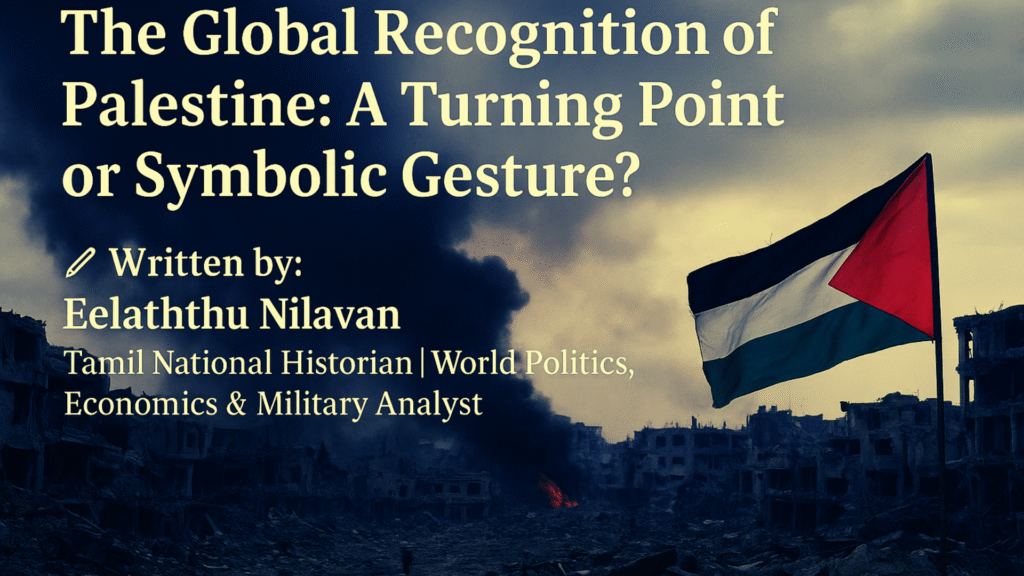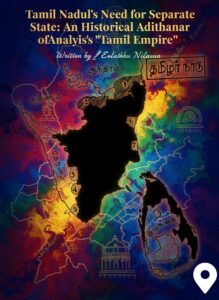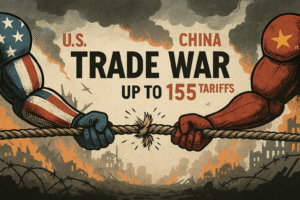✧. Historical Context of the Struggle for Palestinian Statehood
The Palestinian quest for statehood has been one of the most enduring and contentious issues in modern history. Since the 1947 UN Partition Plan, which proposed separate Jewish and Arab states in the former British Mandate of Palestine, the region has been engulfed in conflict. Israel declared independence in 1948, but the Arab state envisioned in the UN plan never materialized. Decades of war, occupation, displacement, and stalled negotiations have defined the Palestinian struggle for recognition and sovereignty.

The Oslo Accords of the 1990s briefly raised hopes of a two-state solution, establishing the Palestinian Authority (PA) with limited autonomy in parts of the West Bank and Gaza. Yet, continued Israeli settlement expansion, internal Palestinian divisions, and the cycle of violence have eroded faith in peace. For many Palestinians, international recognition of statehood has become both a symbolic affirmation of rights and a potential diplomatic tool to achieve independence.
✦. Recent Developments: The Wave of Recognition in 2025
In September 2025, a historic diplomatic shift occurred as several major powers—including Britain, Canada, Australia, France, Belgium, and Portugal—formally recognised the State of Palestine. Nearly 150 UN member states had already done so over the past decades, but the entry of G7 nations and influential Western powers has fundamentally altered the conversation.
● United Kingdom: Prime Minister Keir Starmer formally announced recognition, declaring that Britain must “revive the hope of peace and a two-state solution.” His deputy, David Lammy, defended the move as long overdue, emphasising that recognition strengthens the diplomatic path to peace.
● Canada: Prime Minister Mark Carney made Canada the first G7 country to take this step, linking recognition to democratic reforms within the Palestinian Authority and calling for reconstruction of Gaza.
● Australia: Prime Minister Anthony Albanese followed suit, stressing the humanitarian catastrophe in Gaza and underscoring Australia’s support for a two-state solution.
● France: President Emmanuel Macron announced France’s recognition during the UN General Assembly, declaring that the world cannot wait any longer to secure peace. France was joined by Belgium, Luxembourg, Malta, San Marino, and Andorra.
● European Union: Several EU leaders, including Ursula von der Leyen and Portugal’s Antonio Costa, condemned Israeli settlement expansion and violence in Gaza while insisting that a viable Palestinian state alongside a secure Israel is the only path to peace.
● Indonesia: President Prabowo Subianto declared Indonesia would recognise Israel once Palestine achieved full statehood, tying Jakarta’s policy to the principle of reciprocal peace.
● South Africa: President Cyril Ramaphosa delivered a passionate address at the UN, equating Palestinian suffering with apartheid and calling Israel’s actions in Gaza “genocide.”
Meanwhile, Israel’s Prime Minister Benjamin Netanyahu condemned these recognitions as “absurd rewards for terror,” pledging to resist them diplomatically at the UN and warning they would only embolden Hamas. Israel’s staunch ally, the United States, has so far withheld recognition, aligning with Israel’s concerns about security and terrorism.
✦. The United Nations: Position and Action Plans
The United Nations has long been at the centre of the Palestinian question. Palestine was granted “non-member observer state” status in 2012, enabling participation in international treaties and institutions, but not full UN membership due to US veto power in the Security Council.
● Secretary-General António Guterres has repeatedly stressed that Palestinian statehood is a right, not a gift. He has called for immediate humanitarian relief in Gaza, the release of Israeli hostages, and a return to negotiations based on the 1967 borders.
● UN General Assembly sessions in September 2025 became historic as a wave of recognitions were formalised, accompanied by high-level speeches urging an end to war and a revival of peace talks.
● Proposed Action Plans:
⦿ Deployment of an international monitoring mission to oversee ceasefire implementation.
⦿ Expansion of humanitarian corridors in Gaza.
⦿ Strengthening the role of the UN Relief and Works Agency (UNRWA).
⦿ Calls for a renewed multilateral peace conference involving the Arab League, EU, US, and other stakeholders.
✦. The Reality on the Ground
Despite diplomatic momentum, the situation in Gaza and the West Bank remains dire. Nearly two years into Israel’s war in Gaza, hundreds of thousands have been displaced, civil institutions destroyed, and the foundations of a functioning state severely undermined. The Montevideo criteria for statehood—a defined territory, a permanent population, a government, and the capacity to engage in foreign relations—are under existential strain.
Recognition provides Palestinians with a morale boost and a diplomatic weapon, but without concrete enforcement mechanisms, it risks being symbolic. For statehood to become real, international recognition must be tied to:
● Ending Israeli settlement expansion and annexation in the West Bank.
● Ensuring Palestinian elections and institutional reforms.
● Providing international guarantees for both Israeli and Palestinian security.
● Mobilising reconstruction funds for Gaza’s devastated infrastructure.
✦. Conclusion: A Historic Yet Fragile Moment
The recognition of Palestine by Britain, Canada, Australia, France, and others marks one of the most significant diplomatic shifts since the Oslo Accords. It signals that global patience with endless conflict is wearing thin, and that the international community is increasingly unwilling to accept the indefinite denial of Palestinian statehood.
Yet the gap between words and reality remains vast. Recognition without enforcement risks entrenching despair. Still, if tied to coordinated UN action, humanitarian relief, and a revitalised diplomatic process, the September 2025 recognitions could represent not just symbolic gestures but the first step toward a just and lasting peace.

Written by: Eelaththu Nilavan
Tamil National Historian | World Politics, Economics & Military Analyst
24/09/2025
The views expressed in this article are the author’s own and do not necessarily reflect Amizhthu’s editorial stance.


